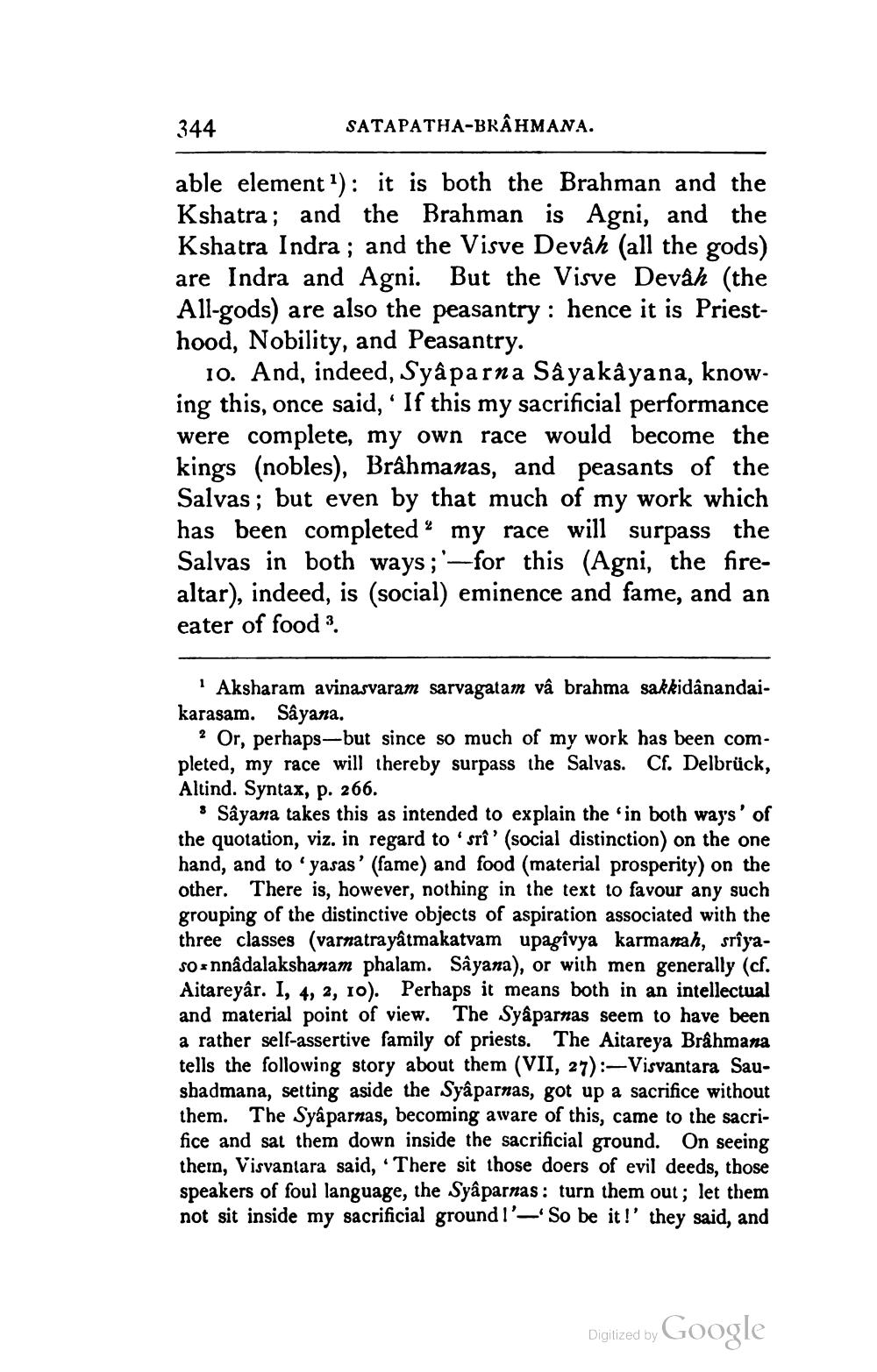________________
344
SATAPATHA-BRÂHMANA.
able element 1): it is both the Brahman and the Kshatra; and the Brahman is Agni, and the Kshatra Indra ; and the Visve Devâh (all the gods) are Indra and Agni. But the Visve Devah (the All-gods) are also the peasantry : hence it is Priesthood, Nobility, and Peasantry.
10. And, indeed, Syâparna Sayakayana, knowing this, once said, 'If this my sacrificial performance were complete, my own race would become the kings (nobles), Brâhmanas, and peasants of the Salvas; but even by that much of my work which has been completed ? my race will surpass the Salvas in both ways; '--for this (Agni, the firealtar), indeed, is (social) eminence and fame, and an eater of food?
Aksharam avinasvaram sarvagatam và brahma sakkidanandaikarasam. Sâyana.
? Or, perhaps-but since so much of my work has been completed, my race will thereby surpass the Salvas. Cf. Delbrück, Altind. Syntax, p. 266.
• Sâyana takes this as intended to explain the 'in both ways' of the quotation, viz. in regard to 'srî' (social distinction on the one hand, and to 'yasas' (fame) and food (material prosperity) on the other. There is, however, nothing in the text to favour any such grouping of the distinctive objects of aspiration associated with the three classes (varnatrayâtmakatvam upagîvya karmanah, srîyaSOs nnädalakshanam phalam. Sâyana), or with men generally (cf. Aitareyâr. I, 4, 2, 10). Perhaps it means both in an intellectual and material point of view. The Syâparnas seem to have been a rather self-assertive family of priests. The Aitareya Brahmana tells the following story about them (VII, 27):—Visvantara Saushadmana, setting aside the Syâparnas, got up a sacrifice without them. The Syâparnas, becoming aware of this, came to the sacrifice and sat them down inside the sacrificial ground. On seeing thern, Visvanlara said, “There sit those doers of evil deeds, those speakers of foul language, the Syâparnas: turn them out; let them not sit inside my sacrificial ground I'_'So be it!' they said, and
Digitized by Google




